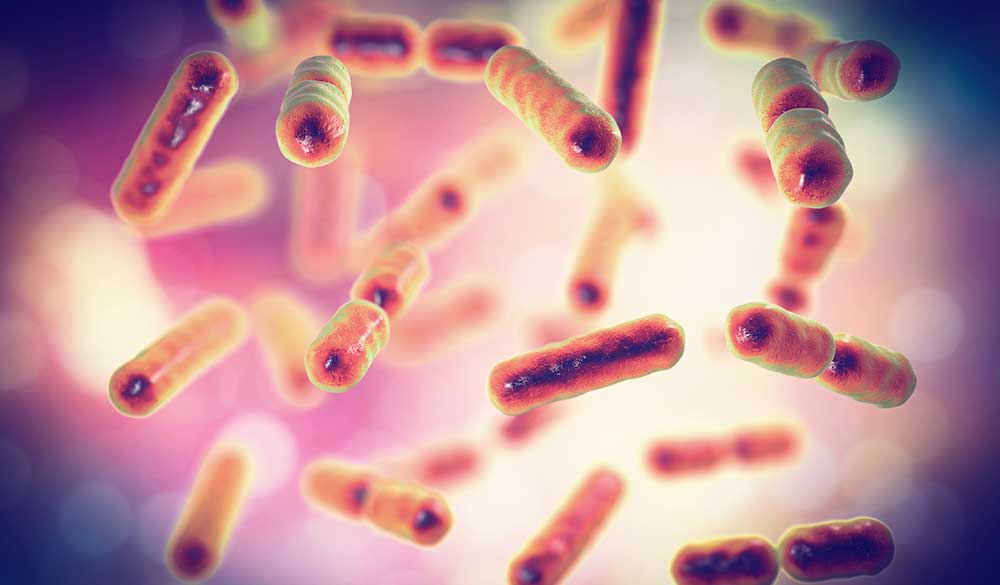Current research is highlighting the influence of the gastrointestinal microbiome on endogenous oestrogen metabolism, and the potential impact on hormone associated pathologies.
The human microbiome is composed of bacteria, fungi, protozoa and viruses present in the body,[1] with the gastrointestinal and vaginal tracts hosting a significant proportion of endogenous microbiota.
The distinct microbiomes in these areas are relatively homogenous across the human population, being composed of just a few bacterial phyla.[2,3] However it has been observed that there are significant differences in the specific genus, species and strains that make up our individual microbiomes,[1,4] and consequently the functional influence of our microbiota both locally and systemically.
One function of the gastrointestinal microbiome which is the subject of current research is the ‘estrobolome’, a term used to define ‘...the aggregate of enteric bacterial genes whose products are capable of metabolising oestrogens’,[5] and its influence on systemic oestrogen levels.[1,5,6]
Oestrone (E1) and oestradiol (E2) are parent oestrogens that can be hydroxylated via phase I hepatic metabolism to produce many oestrogen metabolites.[5,6] Oestrogen metabolites can then be conjugated through hepatic phase II glucuronidation or sulfonation reactions and excreted into bile, urine or faeces.
A proportion of conjugated oestrogens in bile can be deconjugated by certain intestinal bacterial species with beta- glucuronidase and beta-glucosidase enzyme activity, and the free oestrogens can be reabsorbed.[5,6]
Consequently, non-ovarian oestrogen levels, which are highly variable between individuals, can be significantly influenced by the composition of the gastrointestinal microbiome.[1,6]
Two separate cross-sectional studies investigated the association between the composition of the gastrointestinal microbiome and oestrogen levels in healthy subjects.[6,7] Urinary levels of oestrone, oestradiol and oestrogen metabolites and faecal pyrosequencing of 16SrRNA genes were assessed.
One study observed inverse and direct associations between faecal beta-glucuronidase activity and total urinary oestrogen and oestrone levels, respectively, and a strong correlation between faecal microbial richness and alpha diversity and systemic oestrogen levels.[7]
Similar results were found by Furhman, with a statistically significant association observed between the ratio of parent to oestrogen metabolites and whole-tree phylogenetic microbial diversity.[6]
The data demonstrates the importance of cultivating a functional microbiome for healthy oestrogen metabolism.
The clinical significance of the estrobolome, its impact on oestrogen-related pathologies and the potential role of probiotics in hormone-driven conditions requires further research.
References
- Plottel CS, Blaser MJ. Microbiome and malignancy. Cell Host Microbe 2011;10(4):324-335. [Abstract]
- Braundmeier AG, Lenz KM, Inman KS, et al. Individualized medicine and the microbiome in reproductive tract. Front Physiol 2015;6(97):doi:10.3389/ fphys.2015.00097. [Abstract]
- Albert AYK, Chaban B, Wagner EC, et al. A study of the vaginal microbiome in healthy Canadian women utilizing cpn60-based molecular profiling reveals distinct Gardnerella subgroup community state types. PLoS One 2015:doi:10.1371/journal.pone.0135620.[Abstract]
- Greenhalgh K, Meyer KM, Aagaard KM, et al. The human gut microbiome in health: establishment and resilience of microbiota over a lifetime. Environ Microbiol 2016;18(7):2103-2116.[Abstract]
- Kwa M, Plottel CS, Blaser MJ, et al. The intestinal microbiome and estrogen receptor positive female breast cancer. J Nat Can Inst 2016;108(8):djw029.[Abstract]
- Fuhrman BJ, Feigelson HS, Flores R, et al. Associations of the fecal microbiome with urinary estrogens and estrogen metabolites in postmenopausal women. J Clin Endocrinol Metab 2014;99(12):4632-4640.[Abstract]
- Flores R, Shi J, Fuhrman B, et al. Fecal microbial determinants of fecal and systemic estrogens and estrogen metabolites: a cross-sectional study. J Transl Med 2012;10:253.[Full Text]
DISCLAIMER:
The information provided on FX Medicine is for educational and informational purposes only. The information provided on this site is not, nor is it intended to be, a substitute for professional advice or care. Please seek the advice of a qualified health care professional in the event something you have read here raises questions or concerns regarding your health.





